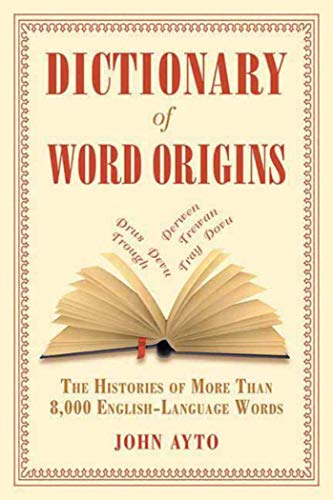Some words and phrases we use today still hold their original meanings. Others have evolved into something completely different, their origins disguised by the passage of time. Rediscovering the origins of old words sheds light on their modern meanings.
10 Scapegoat
Today’s meaning: A person who is blamed for the mistakes of others
Real goats may be saddened to learn the origins of “scapegoat,” which was birthed in an ancient Hebrew tradition. Yom Kippur was a day of atonement and the holiest day in the Jewish calendar. Made from the Hebrew words for “goat for Azazel,” “scapegoat” was first used in 1530 by William Tyndale. In Tyndale’s English translation of the Bible, the word “Azazel” only appears in the context of one particular Jewish ritual. Cutting it into two words,
 The Complete Works of ...
Best Price: $20.00
Buy New $21.81
(as of 07:15 UTC - Details)
Tyndale translated it as “the goat which escapes” or “escape goat.”
The Complete Works of ...
Best Price: $20.00
Buy New $21.81
(as of 07:15 UTC - Details)
Tyndale translated it as “the goat which escapes” or “escape goat.”
Heeding the ritual was a way for the Israelites to be absolved of their sins, and it started with two goats being presented to the high priest. After the presentation, one was given as a sacrifice to Jehovah and the other was saved for a special purpose. Every one of the sins of the people was placed on the head of Azazel’s goat before it was led out into the wilderness. Like an unwanted child in a Brothers Grimm tale, the goat was simply abandoned away from civilization—according to some historians. It was much more likely that the goat was led to the edge of a cliff and “encouraged” to jump off. (The Hebrew word Tyndale translated as “escape” is more commonly translated as “go away forever.”)
9 White Elephant
Today’s meaning: Something that costs more than it’s worth
 The Unabridged Devil&r...
Best Price: $4.05
Buy New $13.50
(as of 02:50 UTC - Details)
Coming from the kingdom of Siam (modern-day Thailand), this phrase was birthed from the customs of the Siamese kings. When the king took offense at something someone said or did, he didn’t leap straight to an execution. Offended but fair, he would grant the victim a gift, a symbol of the country itself: a white elephant. The offender was unable to refuse the gift, as doing so was equivalent to treason. Why would someone refuse such a lavish gift? Because taking care of the elephant would likely make the offender go bankrupt.
The Unabridged Devil&r...
Best Price: $4.05
Buy New $13.50
(as of 02:50 UTC - Details)
Coming from the kingdom of Siam (modern-day Thailand), this phrase was birthed from the customs of the Siamese kings. When the king took offense at something someone said or did, he didn’t leap straight to an execution. Offended but fair, he would grant the victim a gift, a symbol of the country itself: a white elephant. The offender was unable to refuse the gift, as doing so was equivalent to treason. Why would someone refuse such a lavish gift? Because taking care of the elephant would likely make the offender go bankrupt.
The introduction of the phrase into the English lexicon was hurried by the famous showman and circus owner P.T. Barnum. One of the first to bring one of the venerated animals out of the country, he introduced it to a rapt public desperate for the exotic. None of the spectators were happy when they discovered the elephant presented to them was light gray instead of white. Barnum himself knew they weren’t supposed to be milky white and worked to dispel the myth that they were.
8 Running Amok
 Dictionary of Word Ori...
Best Price: $6.67
Buy New $10.65
(as of 05:55 UTC - Details)
Dictionary of Word Ori...
Best Price: $6.67
Buy New $10.65
(as of 05:55 UTC - Details)
Today’s meaning: A sudden assault against people or objects; out of control
Seen today as a genuine psychiatric condition found in nearly every culture on the planet, the phrase, as well as the idea itself, comes from the tribesmen of theMalay people in the 1700s. Excused as a curse laid down on someone by malevolent spirits, a person who was running amok would often be unable to reason, harming everything within reach until subdued. Sadly, the sufferer was often killed in the process.
In the 1770s, one of the earliest Western depictions of the ailment was given to us by the British explorer James Cook, who wrote about an episode he witnessed firsthand. The psychosis often resulted in the maiming of multiple victims and occurred without warning, cause, or target. The word itself derives from the Malay word mengamok, which roughly translates as “to make a furious and desperate charge.”





